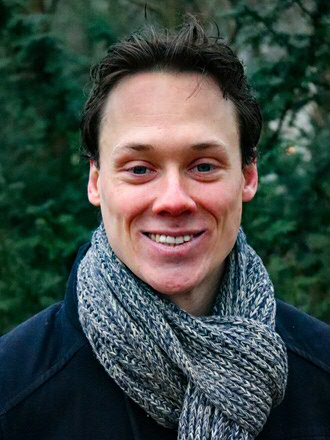Lecturer's blog 15: "Courses as a tool, not a purpose: the EOR game" by Daniël Vullings
In the coming months, lecturers following the Academic Education Track will write the lecturers' blog and give their views on this track, teaching innovation and best practices.

Every bachelor’s and master’s program consists of a variety of courses. The goal of studying is to pass these courses and, ideally, learn something. I am curious how many people agree and disagree with this statement. I hope that the majority would disagree and argue that we provide courses to teach students the skills they need to be successful in their careers. We realize that we cannot provide the specific knowledge required for the far majority of jobs that our students will end up in, so instead, we lay the foundations of the field of studies and make sure students obtain the skills to obtain this knowledge after they graduate.
Consequently, we should train students to think independently, apply their knowledge, and expand their knowledge and skills in new areas. Although courses provide case studies and exercises, these cannot deviate too much from the course material and require grading capacity. Charlie Carroll described a wonderful initiative in the previous blog and I focus on a topic closely related to his GoVenture CEO simulation. However, I feel widening our scope to the program level is required. Instead of focusing on individual courses, I want to bring courses together.
Giving the spotlight to course content
To connect courses at the program level, I am developing the EOR game (suggestions for better names are most welcome!). The EOR game is a game that students will play over the course of a week, in which they run a company. Specifically, students have to decide on the overall strategy in terms of total output, labor intensity, and social impacts such as CO2 emissions and diversity, as well as the operational sides (for example, machine maintenance, warehousing, and delivery optimization) and risk management (insurances against natural disasters, production accidents, and supply chain problems).
As opposed to cases studied in courses, students will not know the general structure of the stochastic process that influences these choices, which is similar to real-world situations. Instead, they have to use statistics and econometrics to estimate the parameters before using their skills in applied courses in Actuarial studies, Mathematical Economics, and Operations Research. Furthermore, all choices are related. If there is more uncertainty in the parameter estimates, a more robust maintenance strategy is required to obtain a similar level of machine reliability. In turn, the maintenance strategy affects the importance of insurance against calamities, as poorly maintained machines increase the probability of injured workers and lawsuits.
The course content is crucial for playing the EOR game. Students encounter practical applications of their course contents. Furthermore, they see how these topics relate to each other. Suddenly, it is not only interesting to study actuarial studies because of job opportunities in the insurance industry, but also because the optimal maintenance strategy is affected by the firm's risk profile. However, the game will not stop there. The game presents problems that surpass textbook techniques. Instead, students should consider the scientific literature to find more appropriate tools.
The return of the EOR game
It is not easy to see the relevance of theoretical models. I am therefore not surprised students struggle with this. I, and I am sure a majority of my colleagues, had the same struggles. It would be helpful if we present students with an application of the course contents before taking a course. As I just discussed, applying the skills and knowledge learned in courses afterward is also important. The EOR game serves both purposes by running at regular intervals. First-year students have not had many courses yet but can use common sense to improve firm performance, while older students can gradually apply what they have learned. The EOR game can become a red line throughout the program, giving students a preview of what is to come and a place to apply what they know.
As future students play the game several times throughout their studies, they are incentivized to take as much from their courses as possible. The game tests abilities that many employers are interested in, namely whether one can translate the broad theory to a specific problem that is solvable, whether one can teach themselves new skills, and whether one can be both independent and a team player. Furthermore, the grading will be on the curve. So future employers can see how students compare to their peers. Although a low grade should not disqualify a student, a good grade helps career prospects.
The kick-off
The development of the game is getting closer to being finished. We are currently talking about running the EOR game in the academic year 2023-2024 for the first time in the first year of the BSc in EOR. In the future, we want to run it for the whole BSc EOR. Although the focus is currently on making this a success, I am always open to brainstorming about further extensions, so feel free to contact me if you are interested in this (d.vullings rug.nl). We are close to the testing stage in which we run the game with student assistants and anyone interested. Again, please contact me if you want to join or observe.
Academic Education Track
Since the start of this academic year, I am part of the Academic Education Track (AET). With this track, the faculty aims to emphasize the importance of education. Individual colleagues in this track develop education expertise in particular areas that we like to share. In this role, I would also like to encourage anyone interested in playing (an adjusted version of) the EOR game with their students or implementing another game to contact me so we can exchange experiences.
Finally, I am happy to announce that Jacoba Oedzes, a fellow AETer, will write the next blog!
